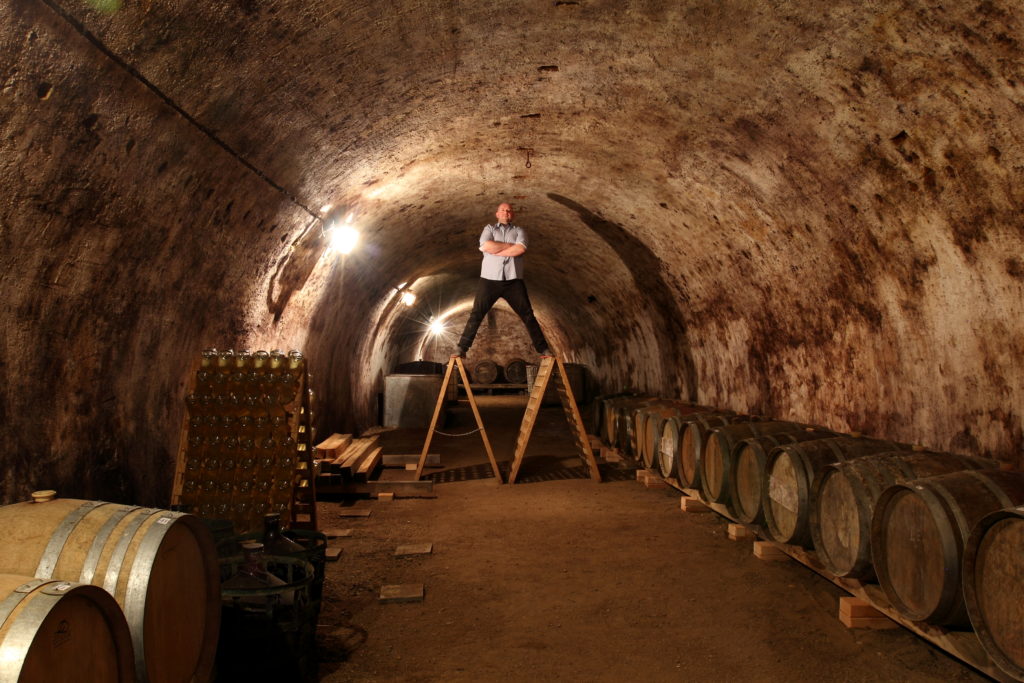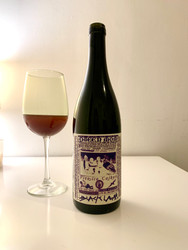Cheers to the Matriarchy
Posted by Veronika Jelenik on January 18 2022 5:01pm
When we first received “Queen Mom” at the shop, I was tasked with finding information to put on our “shelf talker.” I must have created two or three versions before I was satisfied that facts were accurate. The winemaker, Pivnica Čajkov, speaks of the wine in poetic terms—“a window into the winemaker’s soul, a flamboyant lady that reveals your inner world”—and the grape varietal goes by several different names, all completely foreign to me.
Before even taking a sip, I loved this wine for its title and what it represented. I liked that the winemaker referred to the grape as a woman, and I loved that it was called Queen Mom. It was giving total matriarchy vibes that I couldn’t help but feel drawn to.
I knew this wine was an enigma, so I chose to share it with my coworkers to get some more insight. I realized it was one of those wines you basically have to share with others. It’s deserving of conversation and shared awe.
It’s an orange wine made from the winemaker’s preferred grape varietal, Pesecká leánka, in this case referred to as Fetească Albă (and actually, there were at least a couple more names for it that I came across). The grapes spent three weeks on the skin, resulting in a dark, cloudy amber color in the glass, almost opaque and viscous-seeming due to being unfiltered. It resembled peach iced tea in both looks and, surprisingly, flavor.
On the nose, there were notes of bergamot peel, lavender, and black tea. So, basically, Earl Grey. But it also had a Muscat-like quality to the nose; a syrupy essence that resembled those fruit cups you got for lunch in elementary school, or canned peaches.
The palate was similarly stone-fruity, with apricot and nectarine on the front and a citrusy finish. It was fresh, lively, and clean. It had a zippy acidity with a medium-high, chewy tannic finish that was a bit grippy but not overly so. It was medium-bodied, complex, and layered.
One important thing about this wine is that it needs to decant. We decanted it for an hour or more before drinking it. Even then, it was powerful, and the finish wasn’t assaultingly dry, but it definitely packed a punch. As the wine opened up more, it became a little less grippy and a little more sour, resembling candied orange peel on the finish plus some more floral notes, like lilac and jasmine.
Pivnica Čajkov is a family-run winery in Central Slovakia that works primarily with this grape varietal. The winery dates back to the 17th century, and the vines for this particular cuvee are more than 35 years old. The grapes grow in volcanic soil, offering a particularly minerally quality and a depth of flavor that is characteristic of the winemaking region.

Marek Uhnák, winemaker at Pivnica Čajkov, a family-owned winery in Central Slovakia that dates back to the 17th century.
This wine is a rarity, with 1,000 bottles or less produced per vintage. Winemaker Marek Uhnák follows organic and biodynamic farming principles, adding very little sulfur to his spontaneously fermented wines and bottling them unfined and unfiltered. It’s the definition of a “raw” wine. The uniqueness of the terroir and the grapes shines through.
This bottle is special. Don’t miss out. Share it with your wine-loving friends. Here’s to smashing the patriarchy!

